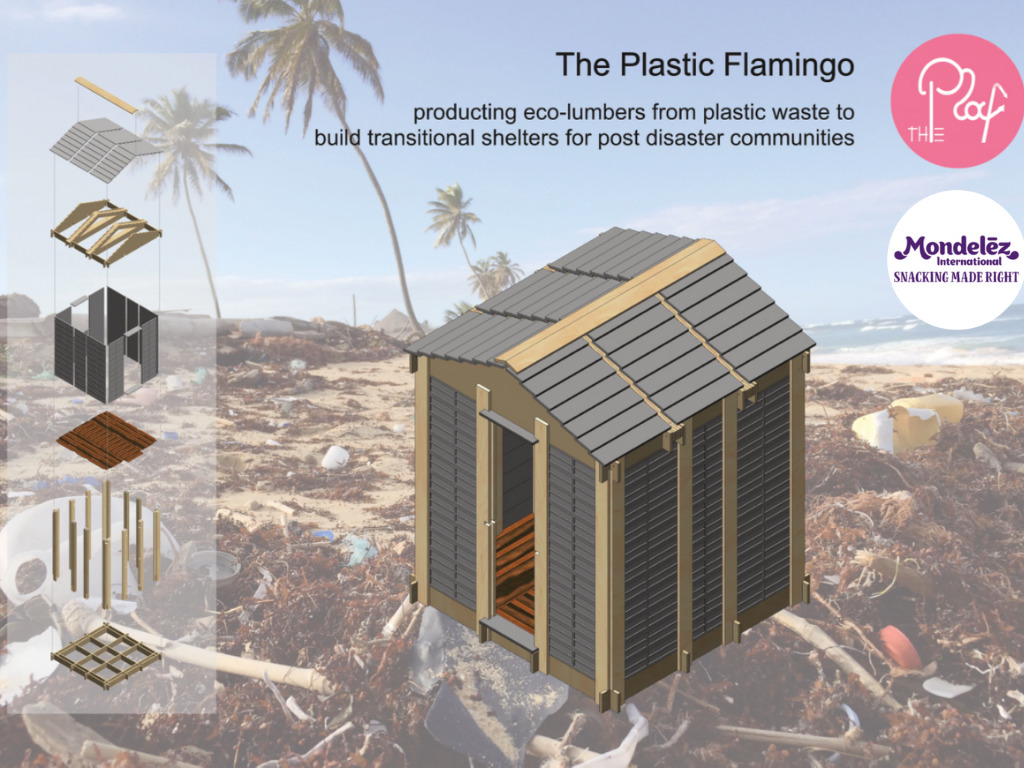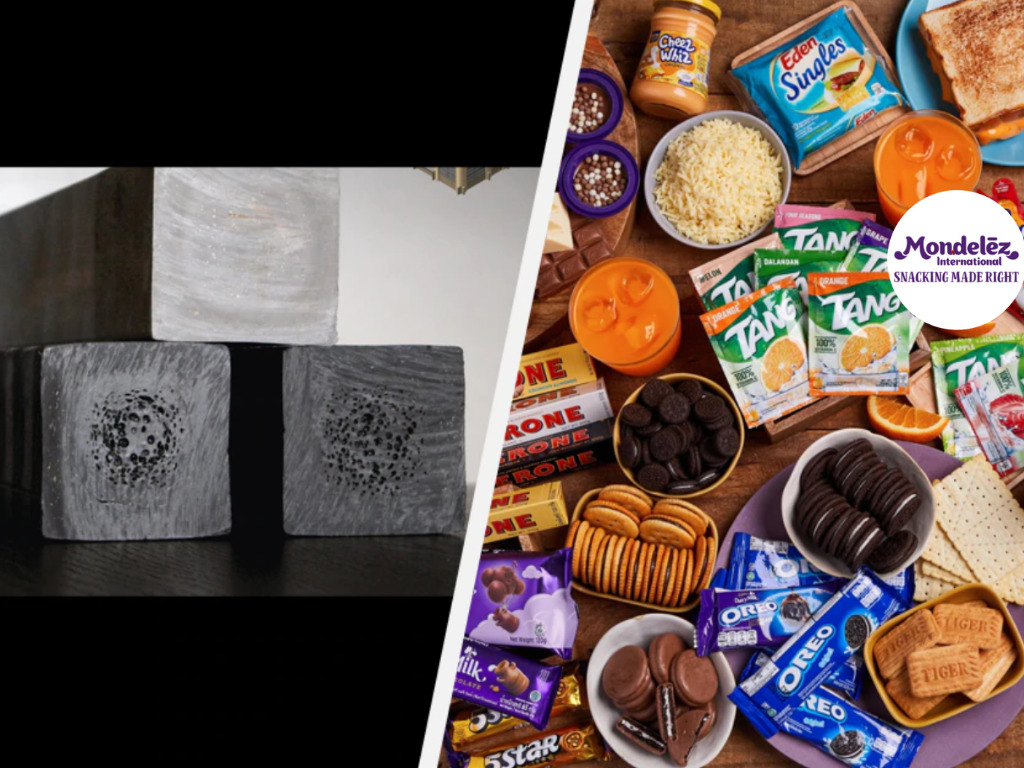Mondelez Philippines: Snack Giant Partners With The Plastic Flamingo To Recycle Waste Into Eco-Bricks
4 Mins Read
Snack Food company Mondelez Philippines recently announced that it would “substantially” invest in plastic waste management and has teamed up with social enterprise The Plastic Flamingo to recycle waste into eco-bricks.
In a virtual briefing, Mondelez Philippines announced that it will invest an undisclosed amount in solutions that help manage waste and has teamed up with Manila-based The Plastic Flamingo that focuses on recycling plastic waste before it reaches the oceans.
Mondelez Philippines country manager for Corporate and Government Affairs Joseph Fabul said that the company plans to recycle some 40 metric tons of post-consumer plastic packaging into a sustainable wood alternative that can be used for construction.
Initially, the two organizations collaborated for a project of 1 metric ton collection and now will expand to collecting and recycling around 40,000 kg of waste that will be picked up from designated locations and processed into recycled eco-lumber.
To achieve this, The Plastic Flamingo will carry out a process where it melts packaging wastes, sets it into a mold, and then transforms it into eco-bricks making eco-lumber that will be utilized in creating disaster relief shelters or huts for use during typhoons and similar calamities.
In a press release seen by Green Queen, Fabul said: “We are committed to making a substantial investment in collection, segregation, and recycling. A substantial investment for this project. One of our global goals is to help minimize our climate change impact by addressing the collection and recycling of plastic packaging. This means investing in waste management.”
We are committed to making a substantial investment in collection, segregation, and recycling. A substantial investment for this project. One of our global goals is to help minimize our climate change impact by addressing the collection and recycling of plastic packaging. This means investing in waste management
Joseph Fabul, country manager for Corporate and Government Affairs, Mondelez Philippines

Plastic that stands eligible for this process includes plastic bottles, plastic bags, tupperwares, sachets, single-use plastic, bubble wrap, and plastic cups and plates, among others.
Also, in the near future, locations will be identified where the shelters can be built.
We encourage everyone to segregate waste in their homes, and to find recycling centers in their communities so that waste is properly disposed of depending on its kind. For plastic waste, the simple step is to ensure it ends in the trash rather than disposing it just anywhere
Francois Lesage, CEO of The Plastic Flamingo
Fabul also said that given plastic is a highly efficient material for food packaging providing the right levels of quality and product preservation, it couldn’t be completely avoided and hence it is important to effectively manage the waste. “Simply put, there are no available replacements for food plastic packaging yet to ensure the contents remain safe, high quality and affordable. However, we do support eliminating unnecessary plastic, or items which have viable replacements that do not harm the environment.”
CEO of The Plastic Flamingo Francois Lesage shared his belief that a world without oceanic waste is possible with a collective effort from different members of the community. “We encourage everyone to segregate waste in their homes and to find recycling centers in their communities so that waste is properly disposed of depending on its kind. For plastic waste, the simple step is to ensure it ends in the trash rather than disposing it off anywhere. These are things we all can do. And for those who can, we encourage investing in collection and recycling activities to make a greater impact together.”
Mondelez also claims to have reduced unnecessary plastic packaging and has pledged to make all its packaging 100% recyclable by 2025.
Mondelez International recently launched NoCOé, a new brand of crackers that marks the multinational’s very first carbon-neutral snack label, and is available across French supermarket chain Franprix and online retailers in the country.
However, the company has been in the headlines a fair amount recently, and not for the right reasons. In December of last year, an annual audit, conducted by nonprofit Break Free From Plastic came out with a report that showed the top polluters in the world. Mondelez made the top ten list, along with beverage giant Coca-Cola Unilever, Procter & Gamble, and Colgate-Palmolive.
According to another report which was released back in 2019, Mondelez International has links with palm oil suppliers that are responsible for the forest fires that took place in Indonesia.
While Mondelez Philippines is making a step in the right direction, it remains to be seen whether the parent multinational snack giant executes similar initiatives across all its geographies.
Lead image courtesy of ABC news and Mondelez Philippines.




